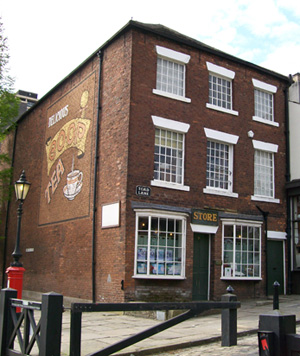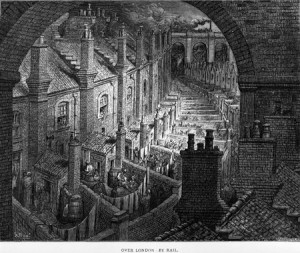- Home
- News
- Features
- Topics
- Labor
- Management
- Opinions/Blogs
- Tools & Resources
Can Co-Operatives Conquer Capitalism And Change The Way The World Works?
Rural Workers Creating The First Co-Ops
Weavers formed the first documented co-operative society in 1769 in Fenwick, Scotland. The modern co-op movement really began with the Rochdale Society of Equitable Pioneers in December 1844.
As the Industrial Revolution rolled across Britain, a menacing, muscular form of capitalism was remaking the country from top to bottom.
Thousands of workers lost their jobs to the new steam-powered machines. The cities flooded with the unemployed. Poverty and illness soared as the skies blackened. Men, women and small children worked 70 hours a week in life-threatening conditions in the booming mills and factories.
Across Europe, radical thinkers sparked opposition to the ravages of this new industrial capitalism. Proudhon, Fourier, Owen, Marx and Engels all argued for a social and political order where people would come before profit and where co-operation would trump competition.
In Rochdale, a bustling mill town north of Manchester, 30 citizens including 10 weavers pooled their savings and opened a tiny shop selling candles, butter, sugar, flour and oatmeal.
By combining forces they were able to afford basics they could not normally buy. Soon they were also selling tea and tobacco. It was a success and an inspiration that gave birth to a new movement.
According to the ICA, more than a billion people take part in co-operative ventures as members, customers, employees or worker/owners. Co-operatives also create more than 100 million jobs – 20% more than multinationals.
More Than 1 Billion Served
During the next half-century, co-operatives and credit unions spread through Europe and around the globe.
There are producer, retail and consumer co-ops. They’re spread across every industry. Members may benefit from cheaper prices, friendly service or better access to markets. But most importantly, the democratic structure of co-operatives means members are ultimately in charge.
A core principle is “one member, one vote.” It’s that sense of control that builds social capital and makes co-operatives such a vital source of community identity.
Profits go back into the business, shared among members or channeled to the community. Because they exist to benefit their members, rather than to enrich private shareholders, co-operatives are fundamentally more democratic.
Empowering People
They empower people, build community, and strengthen local economies.
The stunning success of the co-op movement is reason enough to celebrate 2012 as the UN’s International Year of Co-operatives.
However, the timing is propitious for other reasons.
We’re living with an economic system producing vast wealth for the few at the expense of the majority. The model is broken. Damage to people, communities and the natural world is growing.
In the aftermath of the great financial meltdown of 2008 and the continuing instability of the global economy there is an urgent need and a deep yearning for balance and equality. The search for alternatives has never been more urgent.
“The demented project of endless capitalist expansion, profligate consumption, senseless exploitation and industrial growth is now imploding,” as US social critic and author Chris Hedges has written.
Click on page numbers below to read more
List your business in the premium web directory for free This website is listed under Human Resources Directory






